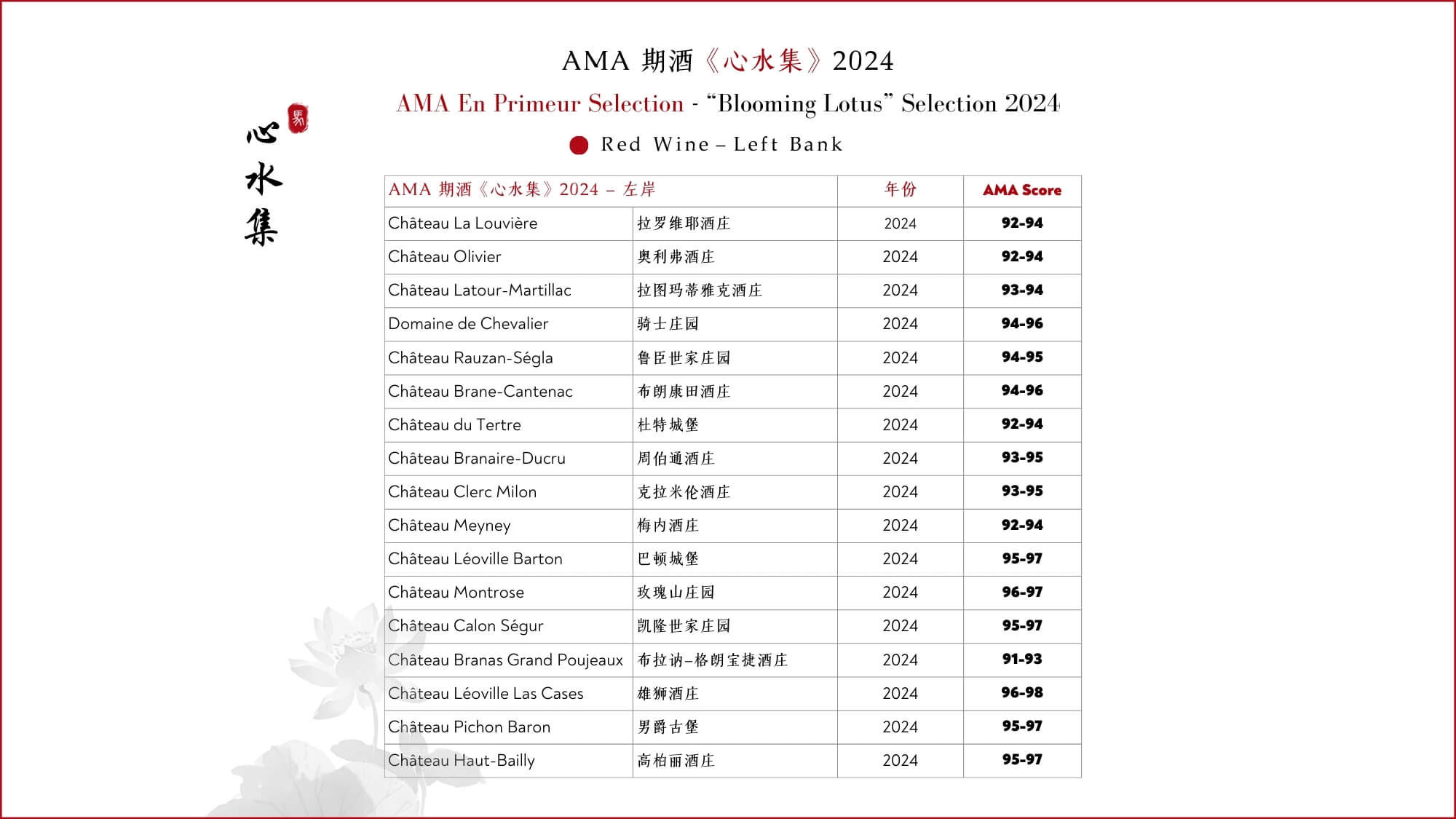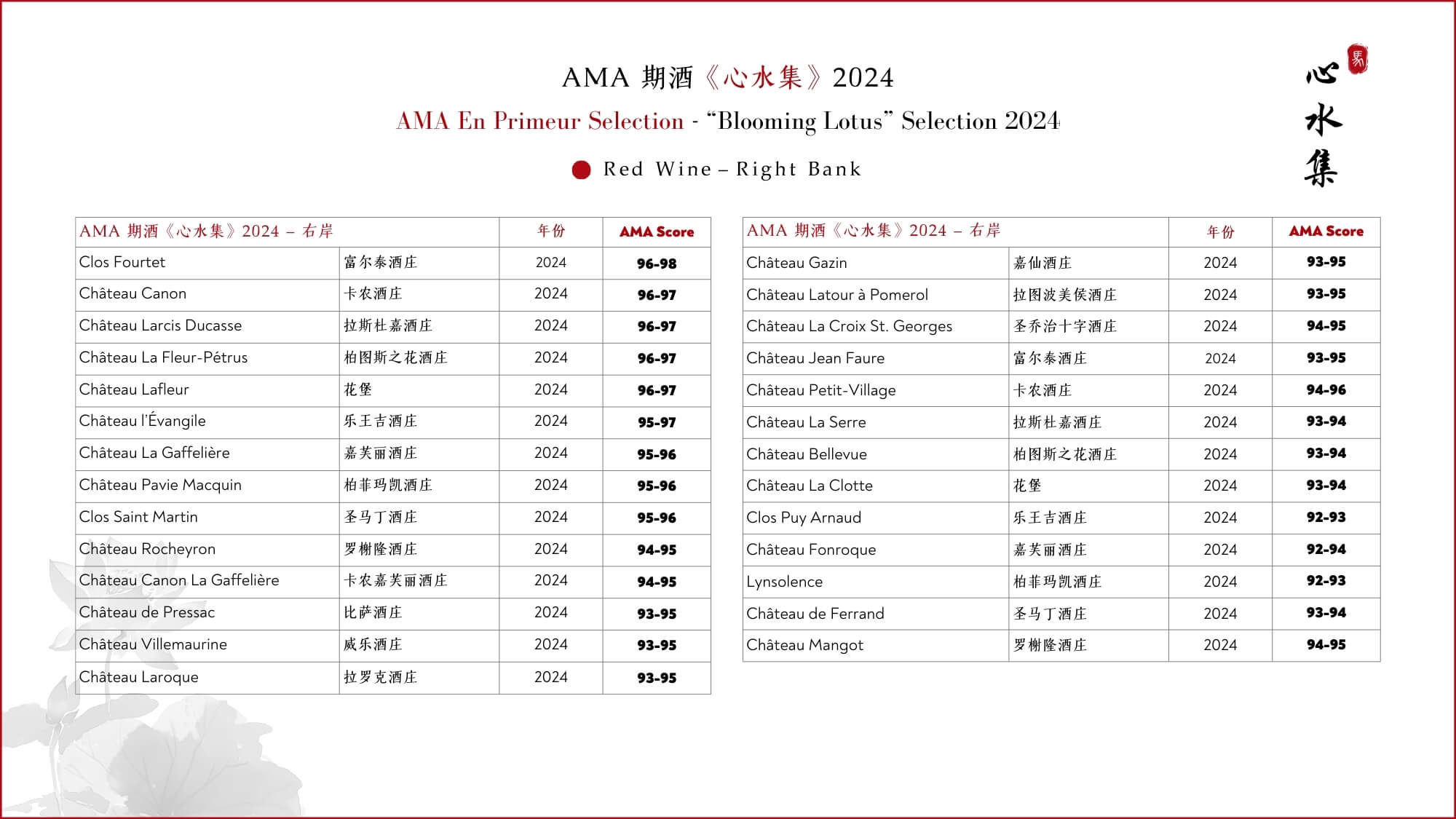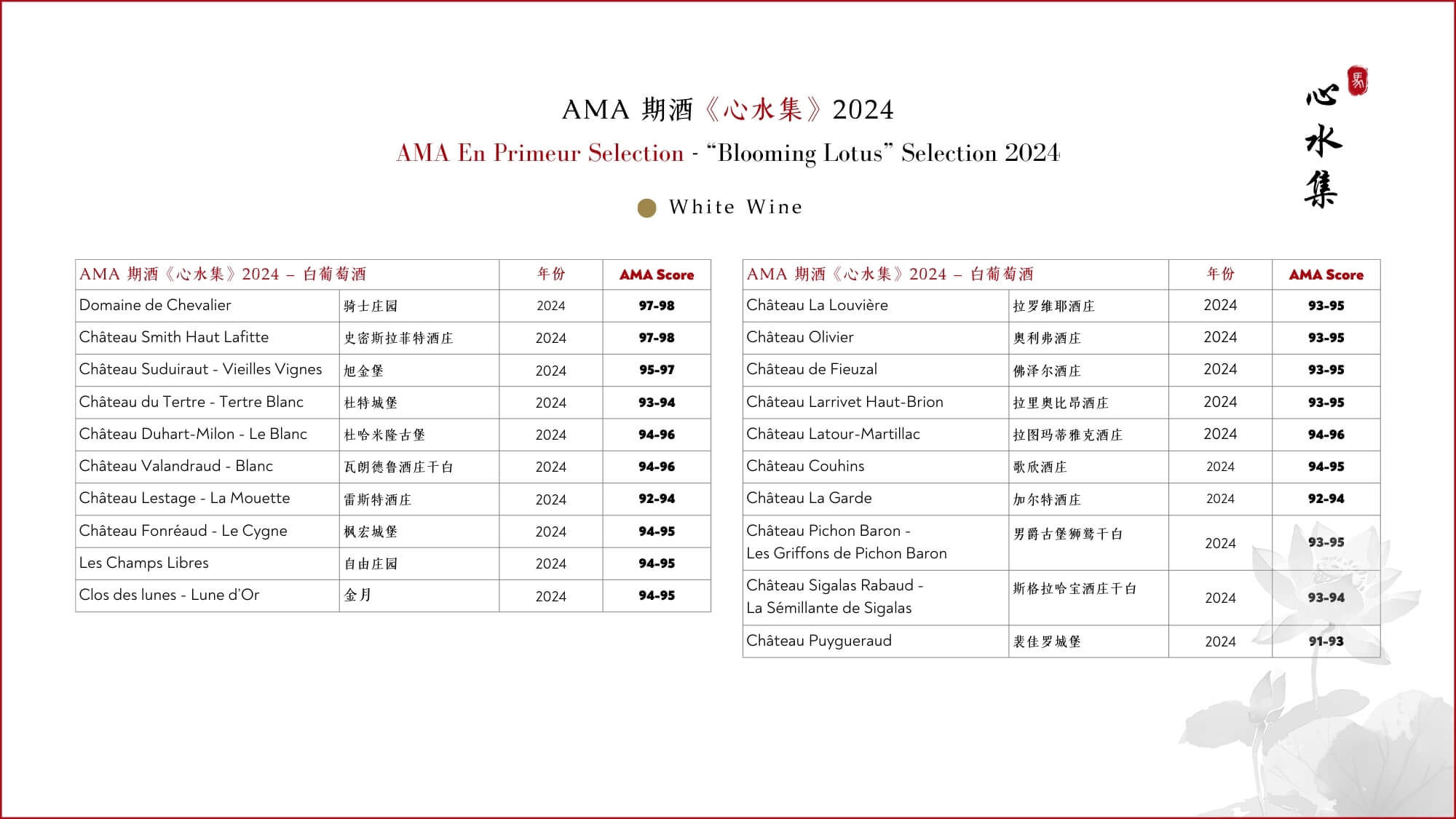AMA Tasting Report – Bordeaux 2024 En Primeur
AMA En Primeur Selection – Blooming Lotus Selection 2024 Release

Bordeaux 2024 – Dancing On The Tightrope
“My fate is not determined by heaven, but by me”!
- Part I: AMA Tasting Report – Bordeuxn 2024 En Primeur
- Part II: AMA En Primeur Selection – “Blooming Lotus” 2024
<Part I>
Overall Impression
The weather conditions of the 2024 vintage are no secret – Bordeaux’s vineyards went through just about every kind of challenge imaginable during the growing season. If this vintage were a child, it would be that wild, headstrong “Nezha” who keeps parents up at night. From budbreak all the way to harvest, winegrowers barely had a moment to catch their breath. Relentless rain in the first half of the year, cold and gloomy skies during flowering, a drawn-out three-week véraison, muddy vineyards, and sudden downpours at harvest time – all of it led to a very uneven level of ripeness. I will break down the weather patterns of 2024 in detail using my analysis tool, The 5+1 Essentials of a Great Vintage, in the following section.
Had this kind of vintage happened twenty years ago, I imagine many would have thrown in the towel. But not in 2024. This time, Bordeaux’s growers stood tall. They didn’t flinch – they held up the sky with their bare hands as the storm rolled in. To me, the accomplishment of this vintage is the result of grit and intelligence, know-how and bold decisions, investment and sheer belief. It’s like a ray of light breaking through the clouds, not blinding, but quietly reassuring.
Over the past 4 weeks, I’ve tasted close to 900 wines from this En Primeur tasting – about 20% fewer than usual. So far, more than 390 wines scored 90 points or above have been featured on my website, www.alexandrema.com, where you can also explore my full bilingual tasting notes.
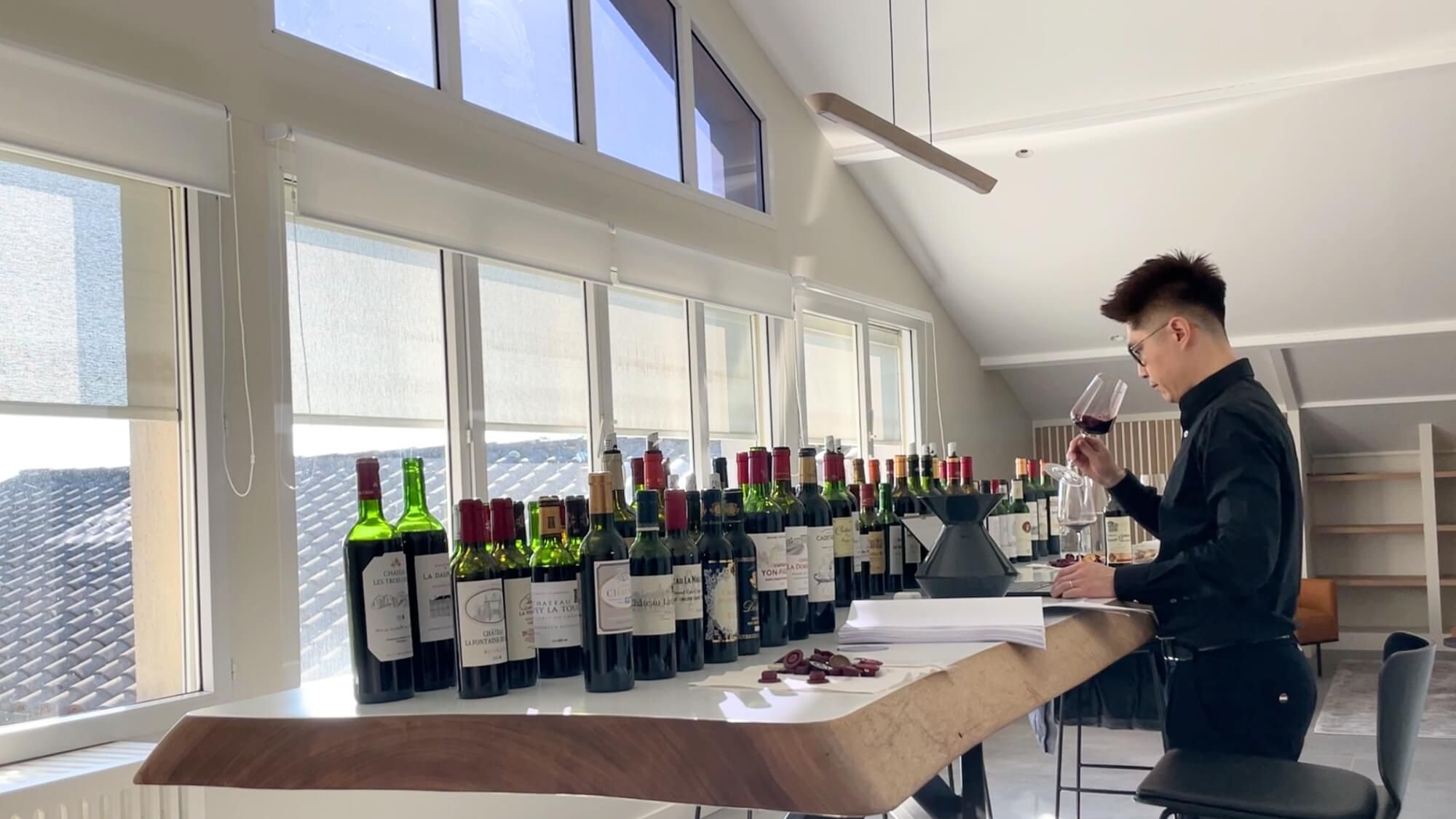
Back to the tasting, my impressions are mixed. Some wines didn’t quite hit the mark: restrained aromatics, thin body, flat on the palate, rough tannins, and unstable structure. Even a few famous estates weren’t spared. But many producers who kept their focus on quality turned in solid performances. Their wines showed bright, well-defined aromas and a smooth, flowing palate. They managed to tame the high acidity and bring depth to the wine, even when the concentration wasn’t especially ideal.
During the tasting period, I often heard 2024 described as a “cool vintage.” Yet, I believe this “label” is not accurate. After reviewing the weather report published by ISVV (with special thanks to Professor Laurence Geny, Elodie Guittard, Dr. Valérie Lavigne, and Professor Axel Marchal), I found that, with the exception of the maximum average temperatures in March and September, every month in 2024 recorded temperatures above the historical average. In other words, temperatures in 2024 were actually sufficiently high.
Given this, why did the grapes fail to achieve full sugar and polyphenolic ripeness? The key issue lies in the lack of sunlight. Excessive rainfall significantly reduced the amount of sun exposure the vines received, leading to lower photosynthetic efficiency. This was the main reason behind the lower concentration and ripeness levels observed in the 2024 vintage.
Therefore, it is important to be precise: 2024 should not be classified as a “cool vintage” in the traditional sense, but rather as a vintage marked by insufficient sunlight. And this distinction, I feel, must be clearly understood.
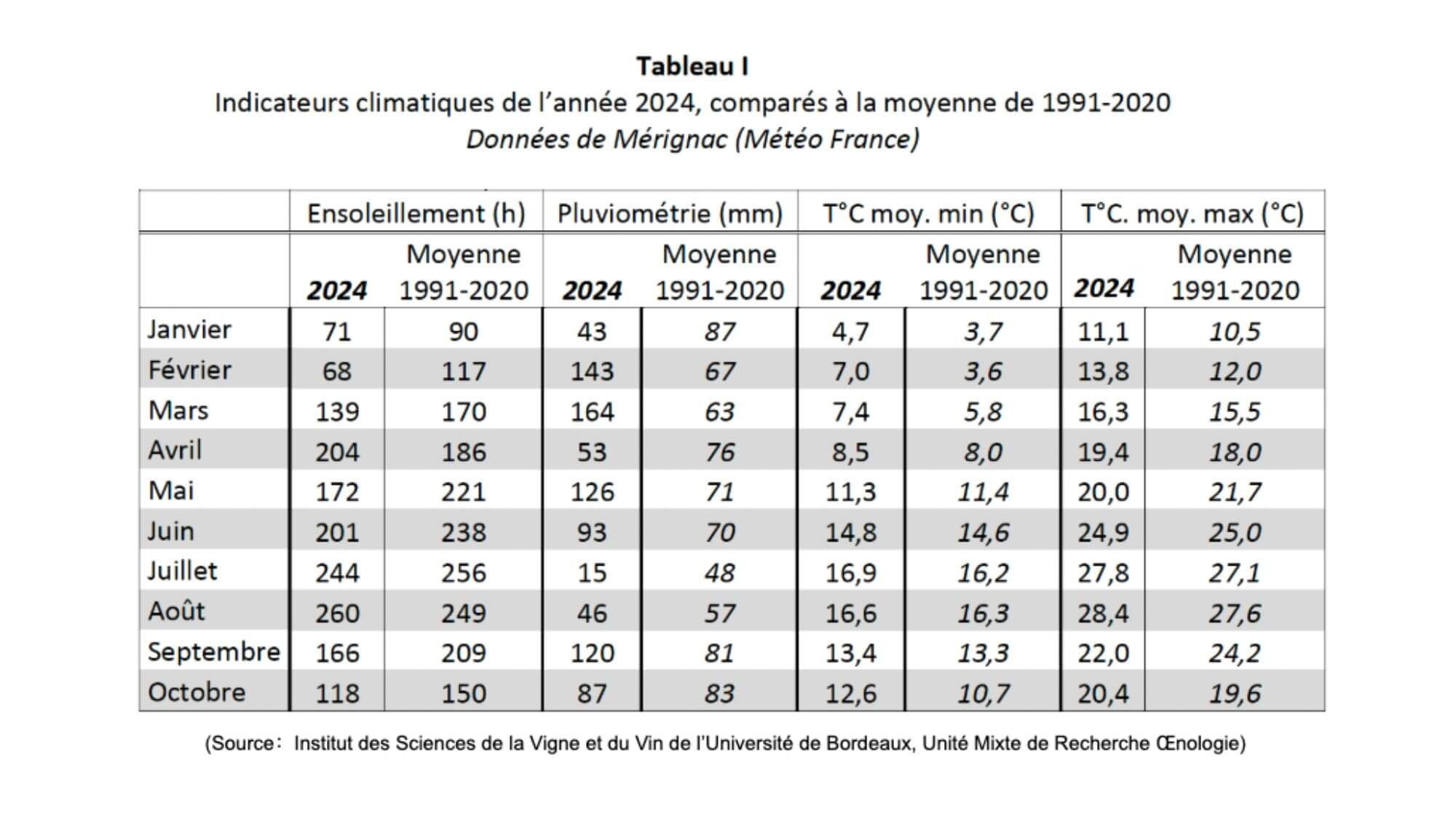
All in all, 2024 may not fit the mold of a traditional great vintage. Making a good wine this year was like “dancing on the tightrope”. Every step in the vineyard and in the cellar had to be deliberate, every choice carefully weighed. In a vintage like this, you might create something remarkable against all odds, or fall flat.
In my opinion, only those châteaux with great terroir, tireless teams, modern equipment, strong financial backing, and unwavering conviction made it through. They’ve come out on the other side, bold enough to say, loud and clear: “My fate is not determined by heaven, but by me”!
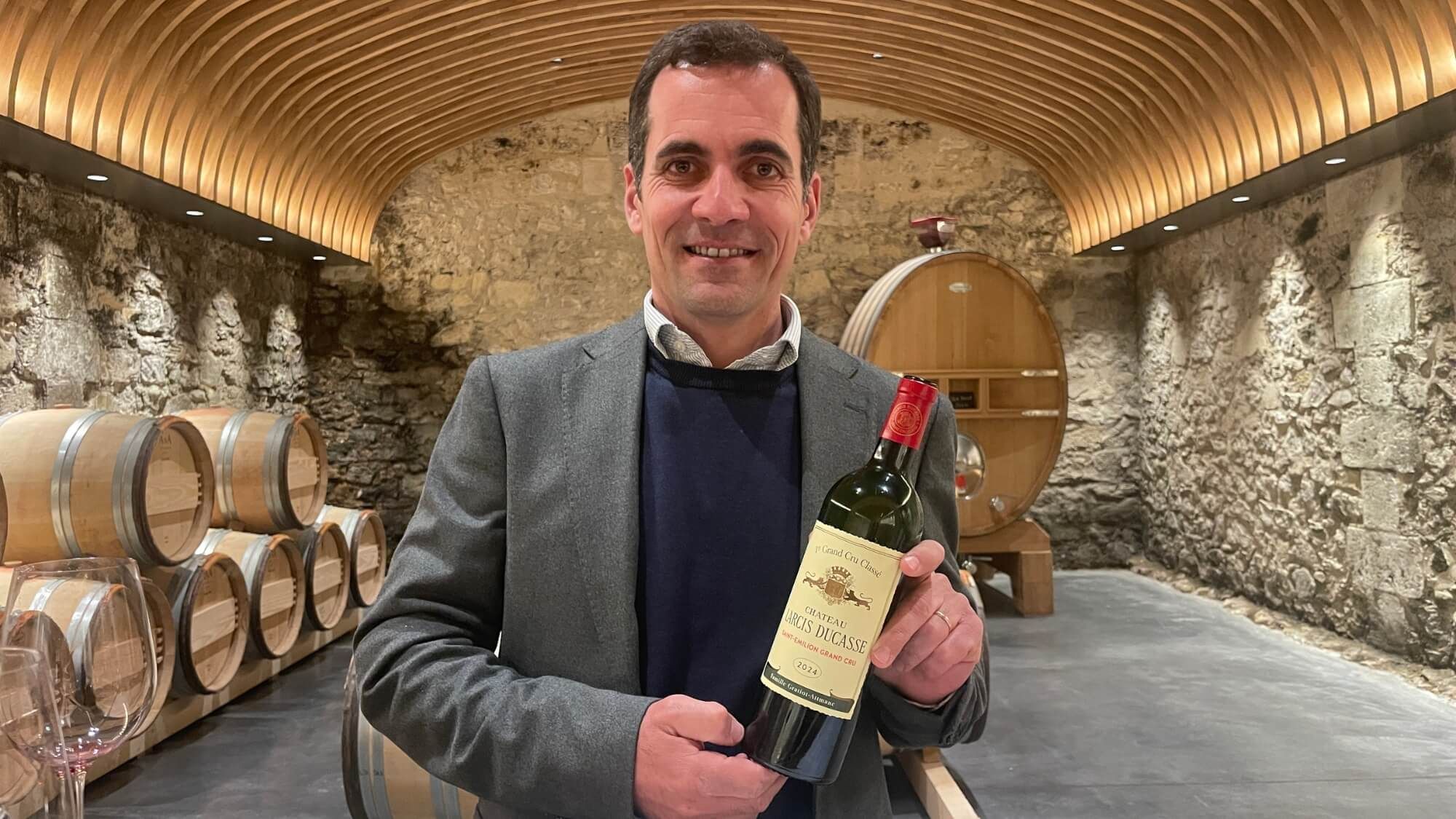
Analyse Tool: The 5+1 Essentials of a Great Vintage
(1) Flowering and Fruit Set Conditions
From early October 2023 through the end of March 2024, Bordeaux received close to 900 mm of rainfall – nearly 20% higher than the average for the same period over the past two decades. At the same time, unusually warm temperatures between January and March significantly accelerated budburst. This combination of warmth and humidity created ideal conditions for downy mildew to become active from the earliest stages of vine growth.
Growers had initially hoped for an early flowering, but May and June brought unexpected setbacks in the form of cool temperatures and persistent rainfall. As a result, flowering extended over three weeks, and fruit set was poor. Almost every appellation reported varying degrees of coulure and millerandage, with old-vine Merlot particularly affected.
These early difficulties set the stage for the uneven ripeness that would characterize much of the 2024 vintage.
(2) Berry Condiitons After Fruit Set
Following fruit set, the rain showed no signs of stopping. The high level of accumulated moisture significantly increased pressure from downy mildew. In a typical year, downy mildew first attacks the more delicate leaves before spreading to the young fruit. But in 2024, the disease proved unusually aggressive, affecting not only the foliage but also the developing berries.
Many estates reported that, in response to this heightened threat, they had already carried out more than ten vineyard spray treatments even before the start of summer.
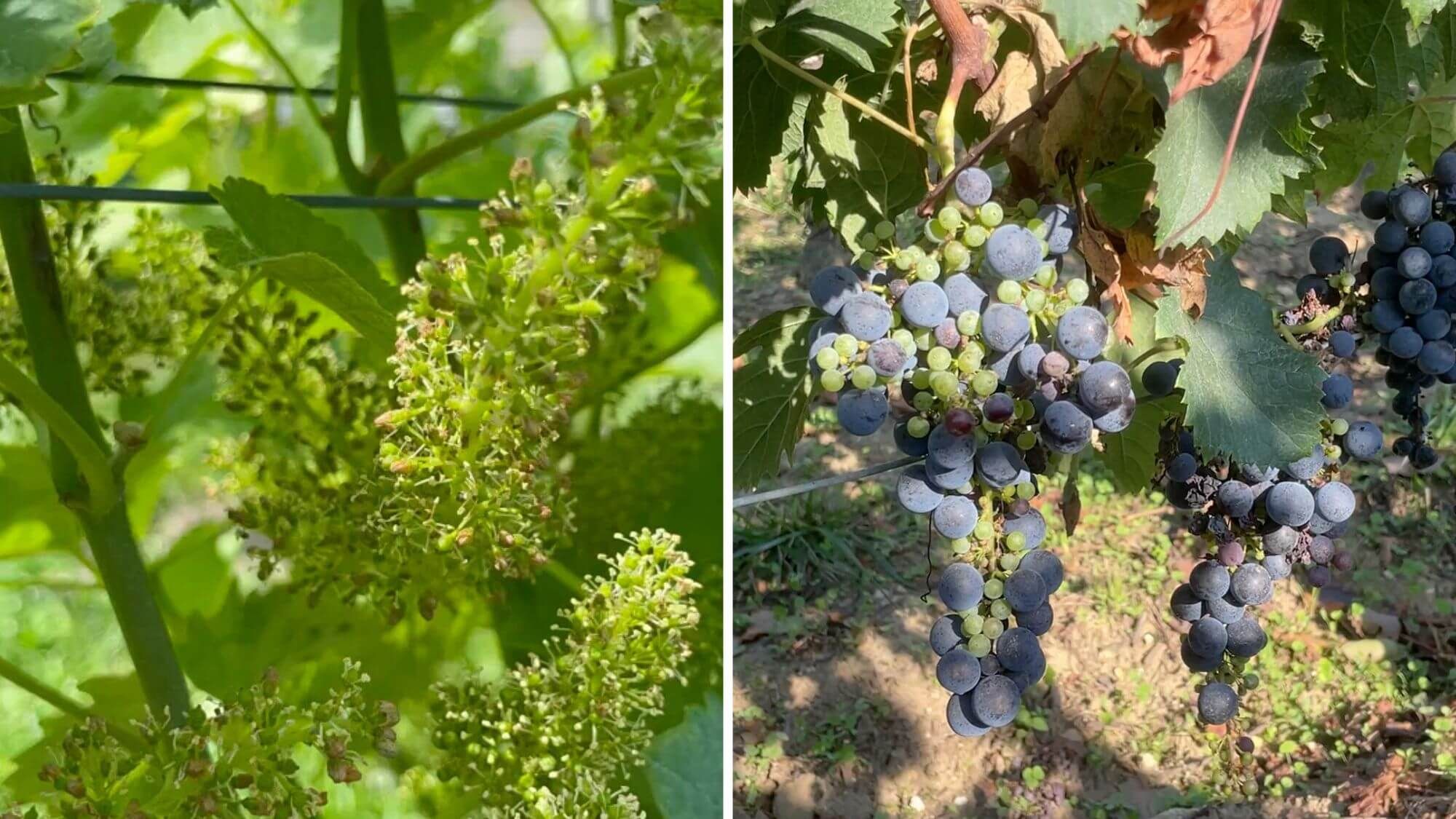
(3) Weather Conditions Around Véraison
Although rainfall gradually decreased from the end of June, and July and August brought a spell of sunny, dry weather, earlier insufficient sunlight and slow warming of water-saturated soils added further complexity to the growing season. Much like flowering, véraison in 2024 was less than ideal, with uneven coloration observed across many vineyards.
The process began on July 22 and did not conclude until August 15, marking a notably extended period of véraison. This firmly established 2024 as a late-ripening vintage. (The midpoint of véraison occurred on August 16, 5 full days later than in 2021, making it the latest of the past two decades)
(4) Ripening Conditions
Although the summer included nearly 50 days of dry weather and August recorded 260 hours of sunshine (compared to the 20-year average of 249 hours), earlier insufficient sunlight and relatively cool nighttime temperatures limited the efficiency of photosynthesis. As a result, grapes showed higher acidity and lower sugar levels than expected.
Fortunately, the marked diurnal temperature variation during the summer favored the accumulation of polyphenolic compounds. While overall concentration was not particularly high from a numerical standpoint, anthocyanin levels were nonetheless quite promising.
(5) Weather Conditions During Harvest
Had the rainfall after September 20 been lighter and shorter in duration, the final outcome might have been considerably better. However, the reality was that over 100 mm of rain fell during September, nearly twice the average for the same period in previous years.
For later-ripening varieties such as Cabernet Franc and Cabernet Sauvignon, it was possible to wait until the rains had passed before harvesting. But for Merlot, picking had to begin even before optimal ripeness was reached. Otherwise, there was a high risk that grey rot would spread rapidly through the clusters within just a few days, leading to significant crop loss.
From what I observed during the harvest season, not all grapes had reached full maturity. The seeds in particular were far from the level of ripeness growers typically hope for. Acidity was unusually high, and the texture of the tannins lacked the natural refinement often seen in warmer vintages. As a result, strict grape selection was not only important, but absolutely necessary.
+1: Extreme Weather Events
Downy mildew and hail were the most critical challenges faced during the 2024 vintage.
Downy mildew pressure began as early as April 20, from the moment the vines started to shoot, and it persisted throughout the season. Several growers with nearly 30 years of vineyard experience noted that they had never encountered such severe mildew pressure this early. It was not uncommon for estates to carry out 20 to 30 spray treatments. Some producers who had previously obtained organic certification even found themselves forced to abandon organic practices in order to cope.
In addition, Bordeaux was hit by three separate hailstorms in 2024, occurring in June, July, and again just before harvest in September. The most damaging event took place between June 17 and 19, affecting a wide range of appellations including Lalande-de-Pomerol, western Pomerol, Fronsac, Saint-Estèphe, and the southern Médoc. Some estates suffered total crop loss.
On July 11, hail struck again, impacting Entre-deux-Mers (particularly the Sauveterre-de-Guyenne area) and Fronsac. Fronsac was hit especially hard, enduring three hailstorms in just three weeks. More than half of its vineyards suffered varying degrees of damage.
The final hailstorm occurred on the eve of harvest, on September 21, in parts of Listrac-Médoc and western Moulis-en-Médoc. Though the damage was less extensive than in the previous storms, some growers were forced to pick in haste, harvesting fruit that had not yet reached full maturity.
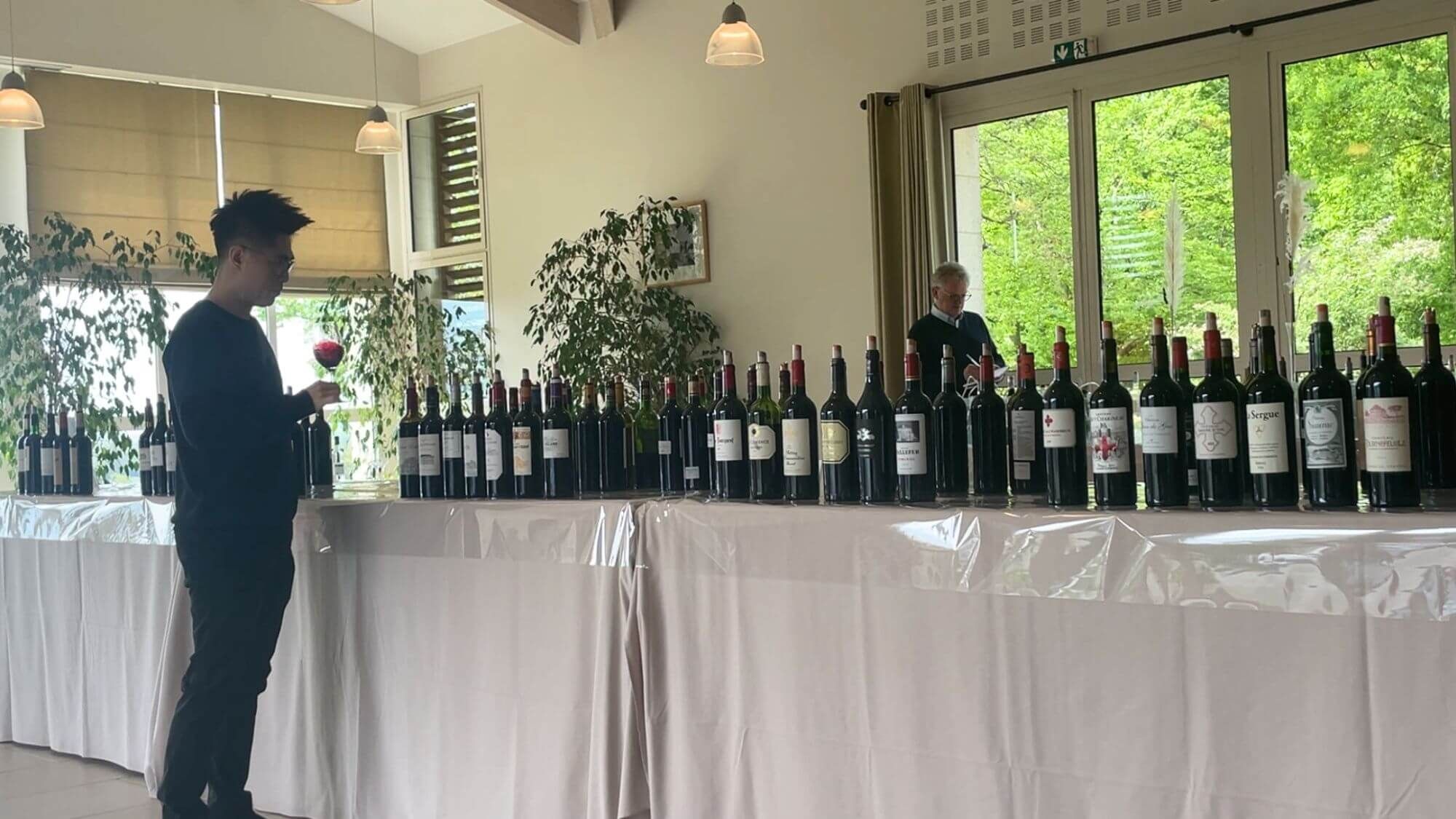
The Characteristics of Bordeaux 2024 En Primeur Wines
Red Wine
1. Fruit is restrained, florals shine
With sunlight in short supply throughout 2024, the grapes developed fewer of the ripe, generous aromas we’ve come to expect from the warmer vintages of recent years. The fruit profile leans towards the crisp brightness of red raspberry and red plum. Where black fruit does appear, it shows up more as high-acid blueberry or wild bramble rather than lush cassis.
What the vintage lacks in richness, it makes up for in elegance. The natural delicacy of floral aromas is given space to breathe. I found notes of rose, violet, and iris, subtle yet striking in character, appearing to varying degrees across both banks.
Wines from the Left Bank in particular tend to speak more softly this year. Their bouquets are more restrained than usual, though still clearly defined, and the toasted tones are relatively discreet. Yet it often took several quiet moments with the glass before its finer details began to emerge. To truly appreciate the 2024 vintage, one must be prepared to wait and listen.
2. A gentle body, a graceful frame
Tannin levels are relatively low this year, and the IPT (Total Polyphenol Index) has dropped by around 10% compared to recent vintages. Those who have tasted the 2024 wines are likely to remember the softness of their texture and the clarity of their structure. These are wines with a calm, composed presence.
That said, not every bottle has achieved ideal balance. Where concentration is limited, the mid-palate may come across as slightly hollow. If grape selection was not carried out with precision, even a wine with a delicate mouthfeel might be undermined by coarse tannins. In this vintage, crafting a wine that feels both seamless and complete required true skill and care.
3.Taut Acidity, Elongated Palate
Red wines from the 2024 vintage are marked by notably high acidity. In skillfully crafted wines, this vibrant acidity helps stretch the palate, lending it length and lift while preserving a vivid sense of freshness.
Still, this same acidity can also accentuate tannins. If the tannin texture is not sufficiently refined, a clash may emerge between grip and sharpness, resulting in a less harmonious impression.
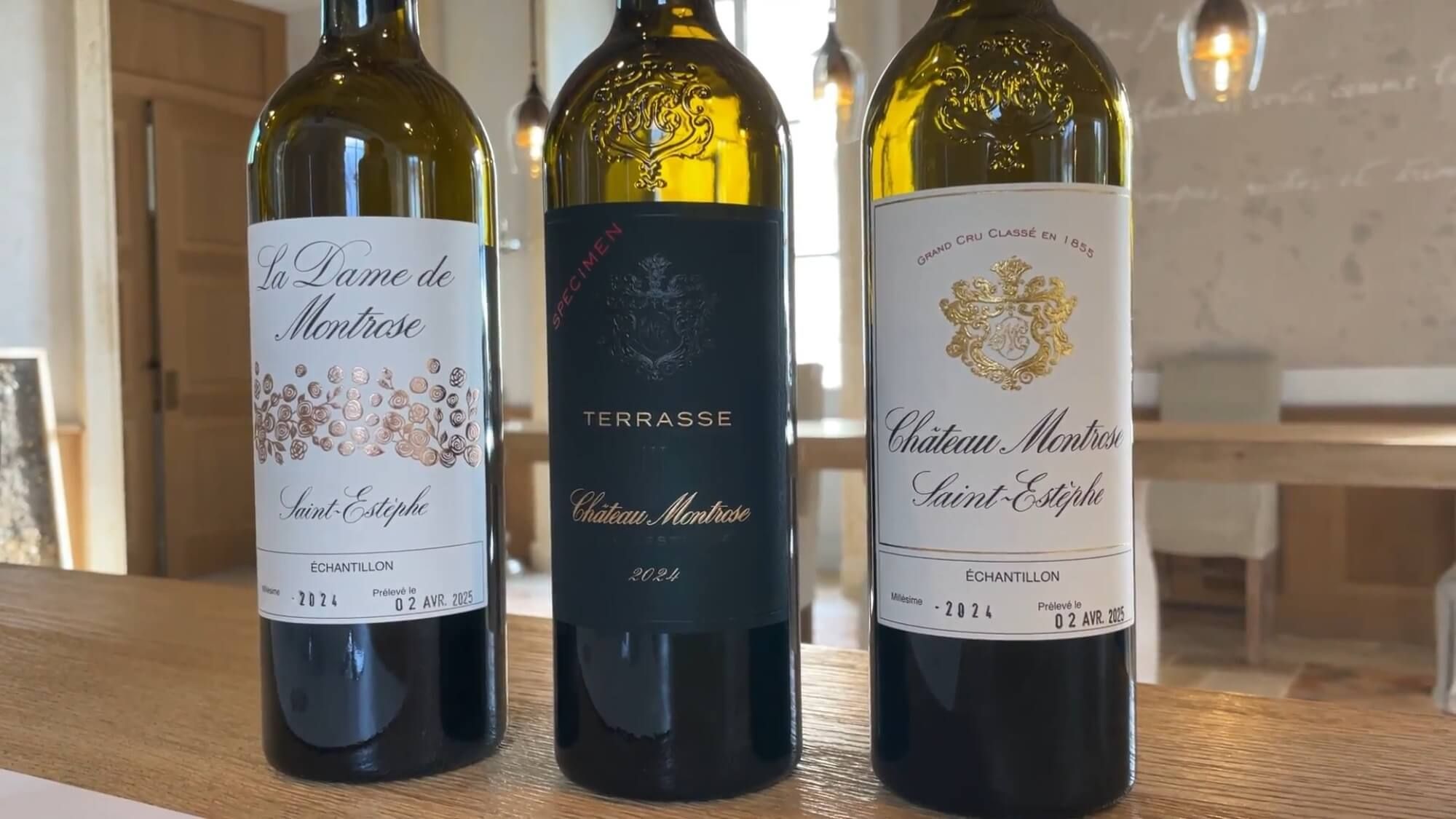
4. More enjoyable young, aging potential depends on the estate
Given the vintage’s restrained aromatics, gentle texture, and moderate concentration, along with the recent shift toward more natural expressions of toasted notes, many 2024 wines already show considerable charm in their youth. Those with especially smooth palates are likely to appeal to younger drinkers and a broader consumer base.
However, from the perspective of aging, most wines from this vintage are not built for cellaring beyond 20 years. Their true potential will depend on the strength and style of the individual estate.
5. Elegance-led estates stand out
The 2024 vintage has proved more favorable for estates that embrace an elegant style. Their naturally reserved character aligns closely with the vintage’s gentle temperament. As long as a stable structure is established on the palate, the lack of complexity can be gracefully compensated for.
Châteaux such as Branaire-Ducru, Margaux, La Mission Haut-Brion, Lafleur, Rauzan-Ségla, Canon, and Clerc Milon performed at a level remarkably close to that of stronger vintages. In contrast, for producers known for richness and exuberance, this sudden turn toward restraint may feel unfamiliar, perhaps even a little unsettling – for themselves as well as for those who know their style best.
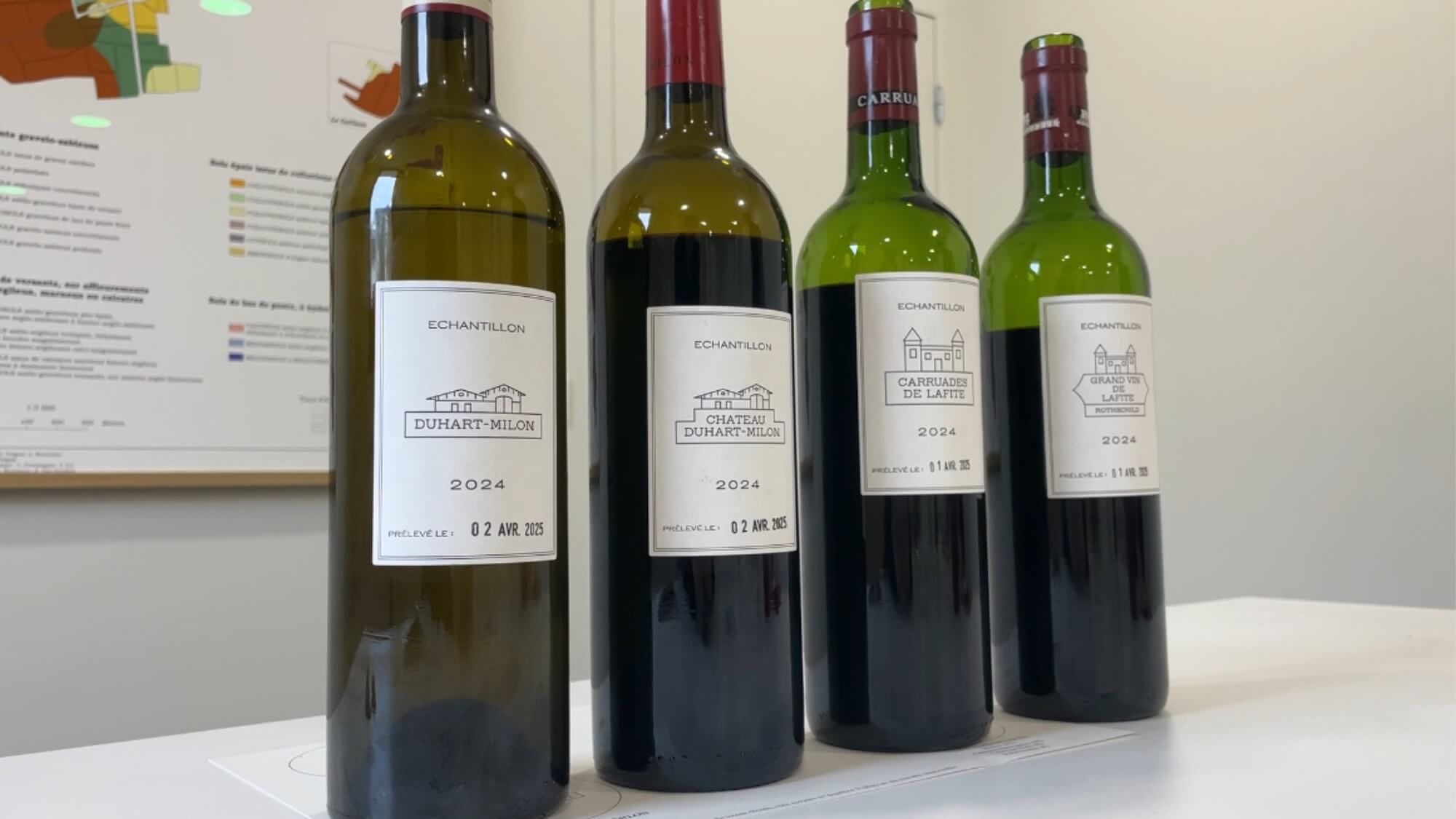
White Wine
It is often said that when red wines in Bordeaux face a challenging year, the whites tend to shine. While I don’t fully subscribe to that belief, I must admit that 2024 is, without question, an exceptional vintage for white wines.
The stretch of over fifty days of sunshine in July and August may not have been enough to bring full ripeness to the red varieties, but it was just right for the early-ripening white grapes. These conditions gave rise to precise and vibrant aromatic profiles. Instead of overt tropical fruit notes, the wines brim with citrus and stone fruit aromas. Grapefruit, mandarin, and bergamot lend a striking freshness, while scents of white peach, melon, kiwi, fruit jelly, and green pineapple add a rounder, sweeter edge. In some riper examples, hints of beeswax and acacia honey emerge, deepening the already layered bouquet with a touch of richness.
Acidity in 2024 is equally impressive – sharp and vertical, like a beam of light that cuts clean through the palate. With its support, I begin to see new possibilities for Sémillon rising to the top ranks of white wines. In warmer vintages, Sémillon can sometimes lean into a round, oily texture. Yet under the influence of such bright acidity and purity, it reveals a crystal-clear delicacy, like translucent fruit jelly that is simply irresistible.
Beyond the established white wine greats of Pessac-Léognan, several standout wines this year deserve special attention. I highly recommend seeking out Les Griffons de Pichon Baron, made entirely from Sémillon on limestone soils; Le Cygne from Château Fonréaud; La Sémillante de Sigalas, a 100% Sémillon from Château Sigalas Rabaud; Vieilles Vignes from Château Suduiraut; Château Cos d’Estournel, which includes 40% Sémillon; Lune d’Or, another pure Sémillon wine; and Le Blanc, the very first white wine released by Château Duhart-Milon, composed of 62% Sémillon.
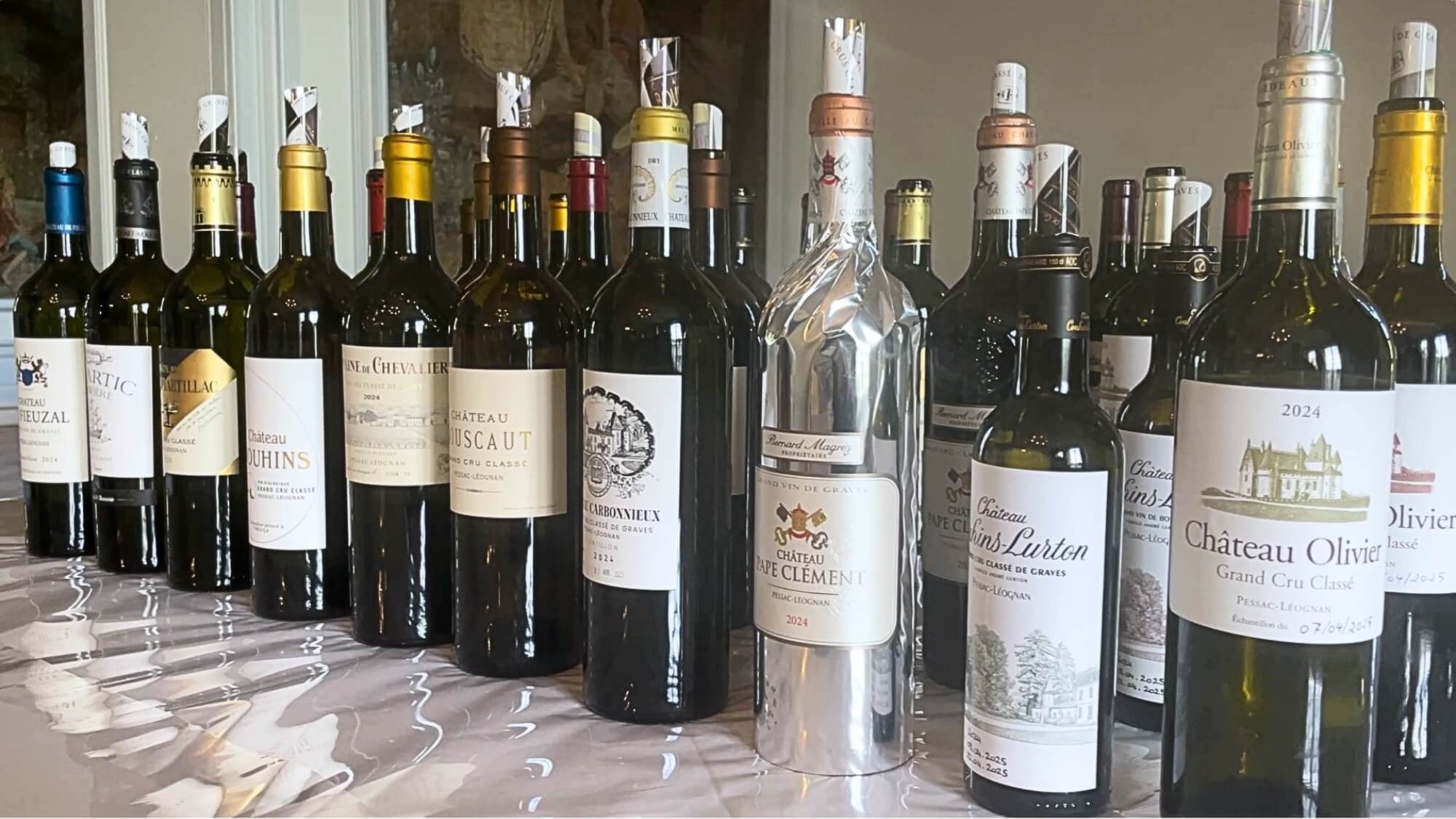
Noble Rot Sweet Wine
The 2024 vintage is the most memorable vintage for noble rot wines since 2019. With strikingly high acidity and remarkable concentration, it feels like the first light of morning shining through golden amber: clear, radiant, and richly warming. For anyone who tastes it, this vintage captures the most glorious expression of great botrytised wine.
Beginning on August 29, over 100mm of steady rainfall created ideal conditions for the formation of morning mist. From September 12 onward, dry weather arrived, offering the perfect environment for botrytis to flourish. By late September, the first wave of botrytised grapes reached perfect condition. Sugar and acidity were in harmonious balance, and the aromas were dazzlingly fresh and pure.
Rain at the end of September followed by dry days in early October laid the groundwork for a second harvest. This second pass produced grapes of astonishing concentration, with residual sugar levels easily surpassing 150 g/L. The resulting wines brim with lush aromas of honey, dried apricot, and marmalade, while the hallmark spice notes appear more vivid and lively than ever.
Yields were also unusually favorable this year. Many estates reported production above 15 hL/ha and expressed great satisfaction with both quality and quantity. For those who love sweet wines, 2024 is a vintage not to be missed.
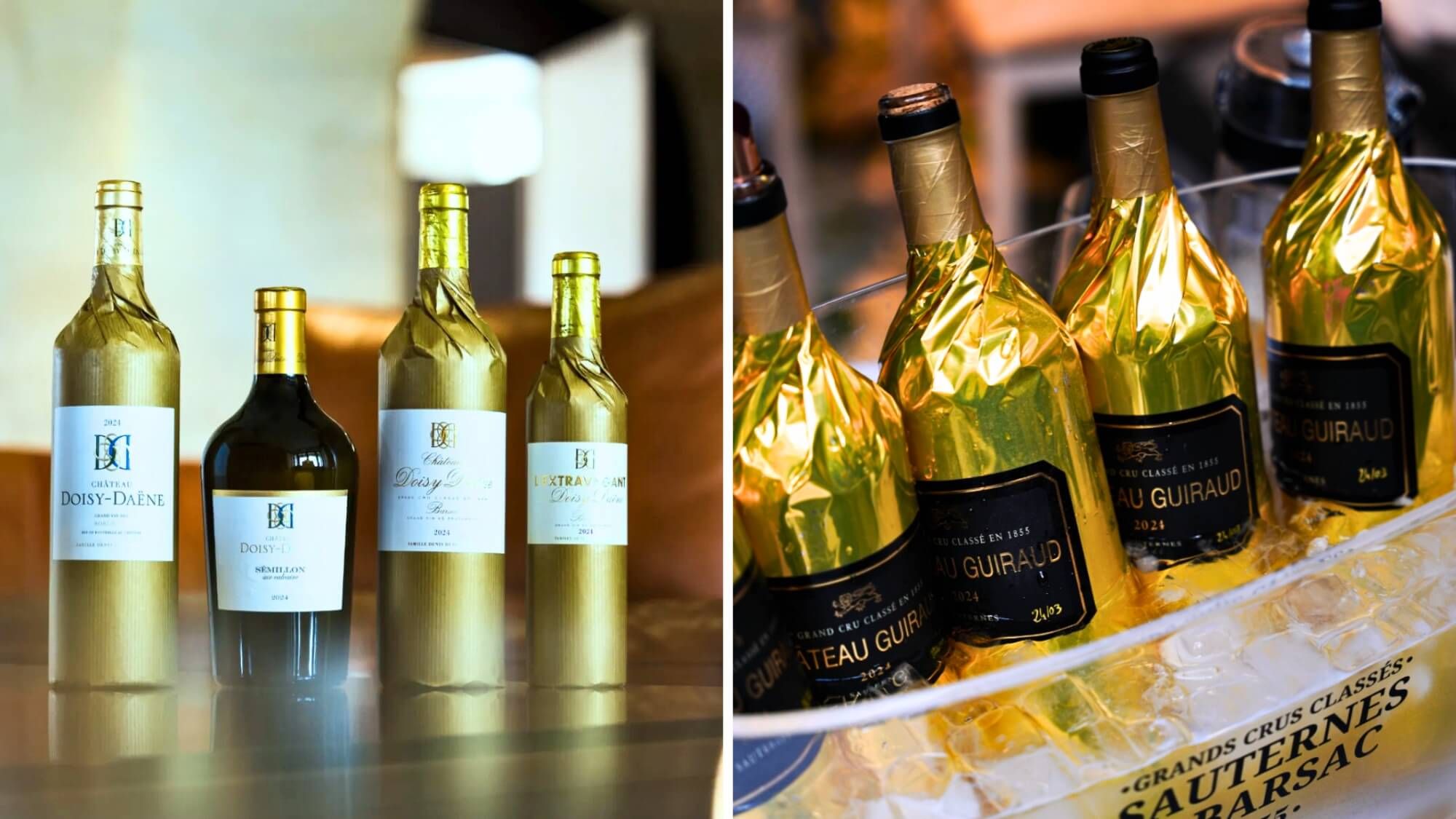
Purchasing Tips
Although the weather conditions in 2024 were far from ideal, a number of estates managed to rise to the occasion and deliver outstanding results. So how did they do it?
In the following section, I will take a closer look at what these exceptional producers did to succeed. Once you understand the methods behind their achievements, you’ll have a clearer sense of how to choose your En Primeur wines this year.
1. Choose estates that succeeded in controlling downy mildew
The 2024 vintage left no time to rest for winegrowers, and there was virtually no margin for error. Two challenges loomed large throughout the season: controlling the spread of downy mildew and ensuring full phenolic ripeness.
Downy mildew appeared unusually early this year, threatening the vines as soon as they began to bud. Château de Pressac took an unconventional approach that proved highly effective. They carried out their first vineyard spray treatment just as the shoots were emerging, which curbed the growth of mildew spores from the start. Even in a year with more than 1,200 mm of rainfall, they completed only seven rounds of spray, with no impact on yields.
Moreover, leaf-thinning had to be done in advance, and the work required confidence and decisiveness. The better the ventilation around the grapes, the lower the risk of downy mildew. If removing leaves on one side was not enough to ensure airflow, some growers continued thinning on both sides.
Another effective strategy involved reducing moisture in the soil. Château Lafleur chose to plow to improve aeration, while Château Durfort-Vivens removed the surface weeds. Although their methods differed, both aimed to prevent excess humidity around the vines.
When all preventive measures failed and downy mildew still appeared, growers had to make hard choices. Around the time of véraison, many estates began manually removing infected berries, underdeveloped bunches, or late-ripening fruit. In some cases, they also increased the intensity of green harvesting. These efforts widened the spacing between berries and improved ventilation, reducing further disease risk.
Flexibility and vigilance were crucial throughout the season. Growers needed to be ready to act at any moment, even during weekends. If the optimal window for treatment was missed, no effort afterward could make up for the loss. For small estates, swift intervention was more manageable. For large properties, however, mobilizing the labor and equipment needed for timely action was a significant challenge.
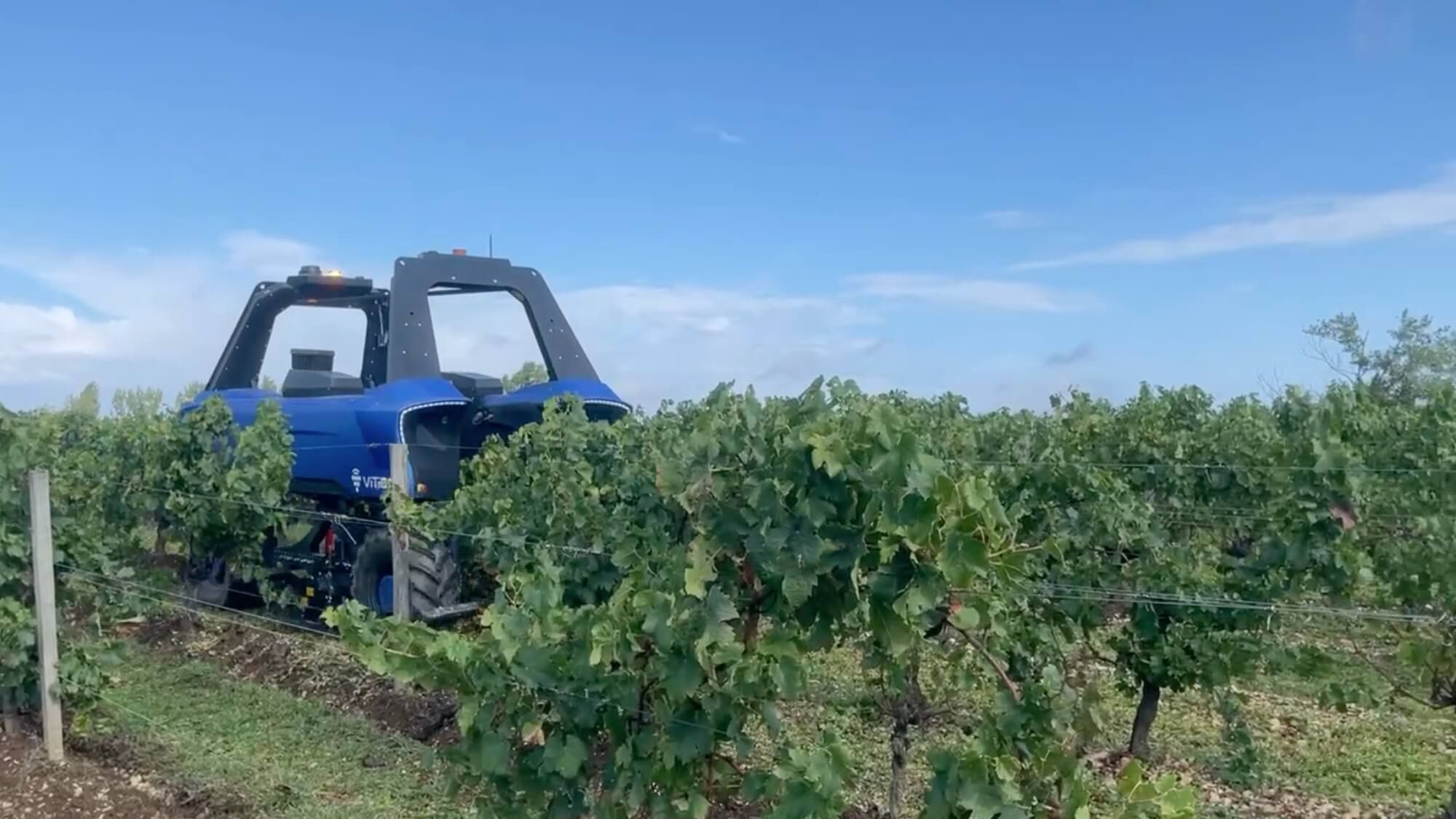
2. Choose estates that pushed selection to the extreme
If I had to name the single most decisive factor behind success in the 2024 vintage, I would say it without hesitation: selection. In other words, the quality of 2024 vintage was not given; it was earned, grape by grape, through relentless sorting.
At Château Les Carmes Haut-Brion, the team observed an extreme unevenness in ripening during veraison. Without delay, they began manually cutting off every underripe bunch and late-developing berry in the vineyard. Château La Clotte went even further. On September 20 and again on the 23rd, they sent teams into the vineyards to hand-remove every grape affected by grey rot. In the end, they harvested only half the volume of a typical year, but the quality was uncompromising.
Other estates also demonstrated impressive rigor. Both Château Rauzan-Ségla and Château Cantenac Brown carried out intensive Selection intra-parcellaire. Grapes showing similar levels of ripeness were tagged and harvested separately.
Selection in the vineyard is not enough. In the cellar, many estates employed both Tri densimétriqe and optical sorting machines. But it was especially remarkable to see how some estates – such as Château Figeac, Château Monbadon, Château Beauregard, Château Prieuré-Lichine, and Château Haut-Brion – used both methods in succession. This level of precision is something I have rarely seen in recent years.
Even after all that, not every grape made it into the grand vin. Château Cheval Blanc downgraded 34% of its wine, and Château Prieuré-Lichine reported a yield of only 20 hL/ha for its first label.
Now you can understand why I say that the 2024 vintage was defined by selection. This is the secret behind Bordeaux’s ability to turn adversity into brilliance.
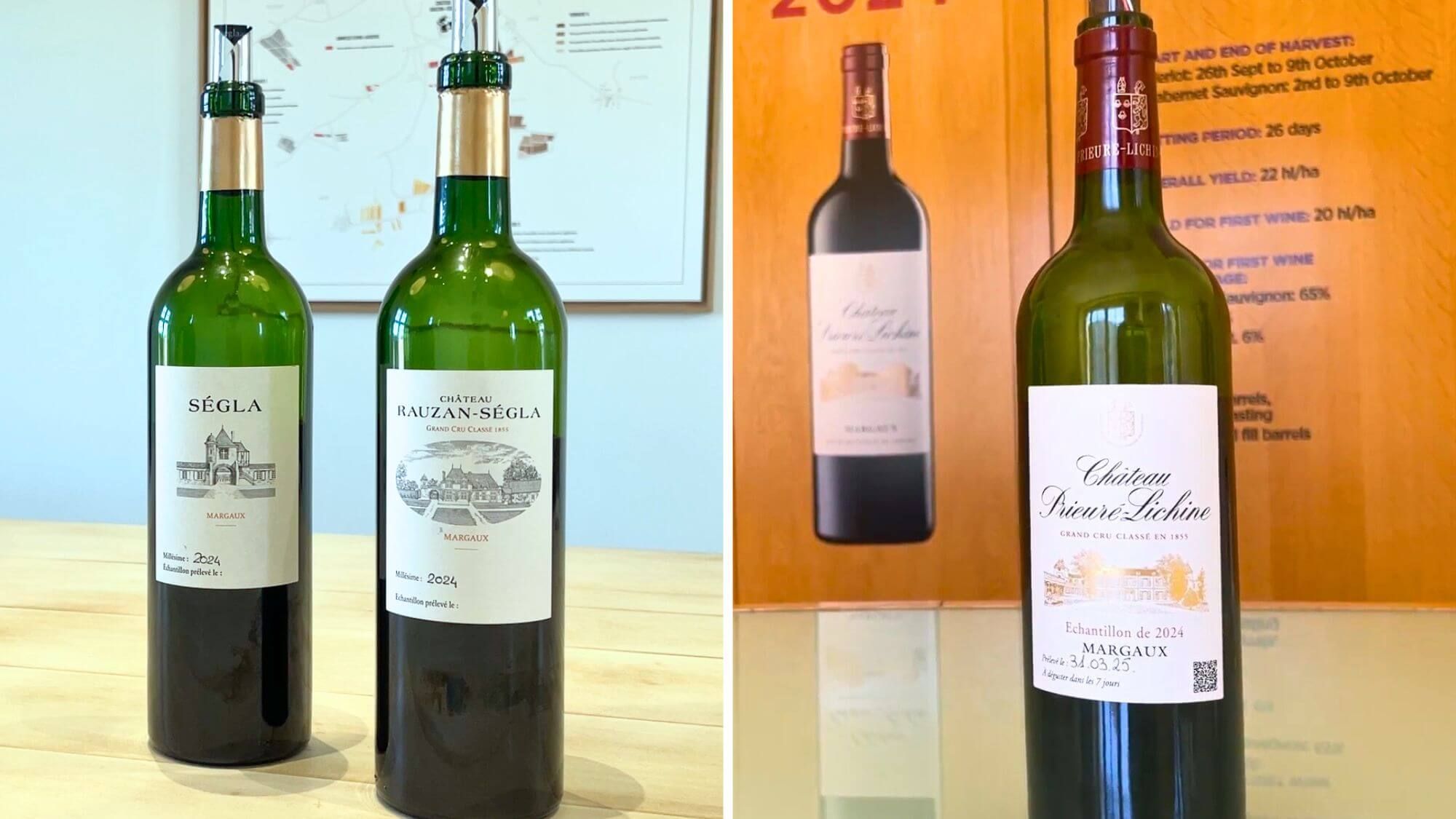
3. Choose estates that practiced gentle extraction
As mentioned at the beginning, 2024 was a vintage that felt like “dancing on the tightrope”. With a relatively light mouthfeel and tannins not fully developed, achieving a sense of balance was no easy task. Too little extraction left the palate feeling hollow, yet with just a touch more, the tannins may become distorted, throwing the structure off balance.
The key, then, was to apply careful, adaptive extraction. During the early stages of fermentation, before alcohol levels had risen, estates needed to perform more pumping-overs and pigeage to build structure gently. But once the must’s density dropped to around 1040, a switch to gentle maceration should be made immediately. After fermentation was complete, extended soaking could begin, minimizing the impact of alcohol on tannin extraction.
The length of this post-maceration varied depending on the style of each estate. Still, maintaining a controlled “infusion” phase proved to be one of the crucial steps toward success in this delicate vintage.
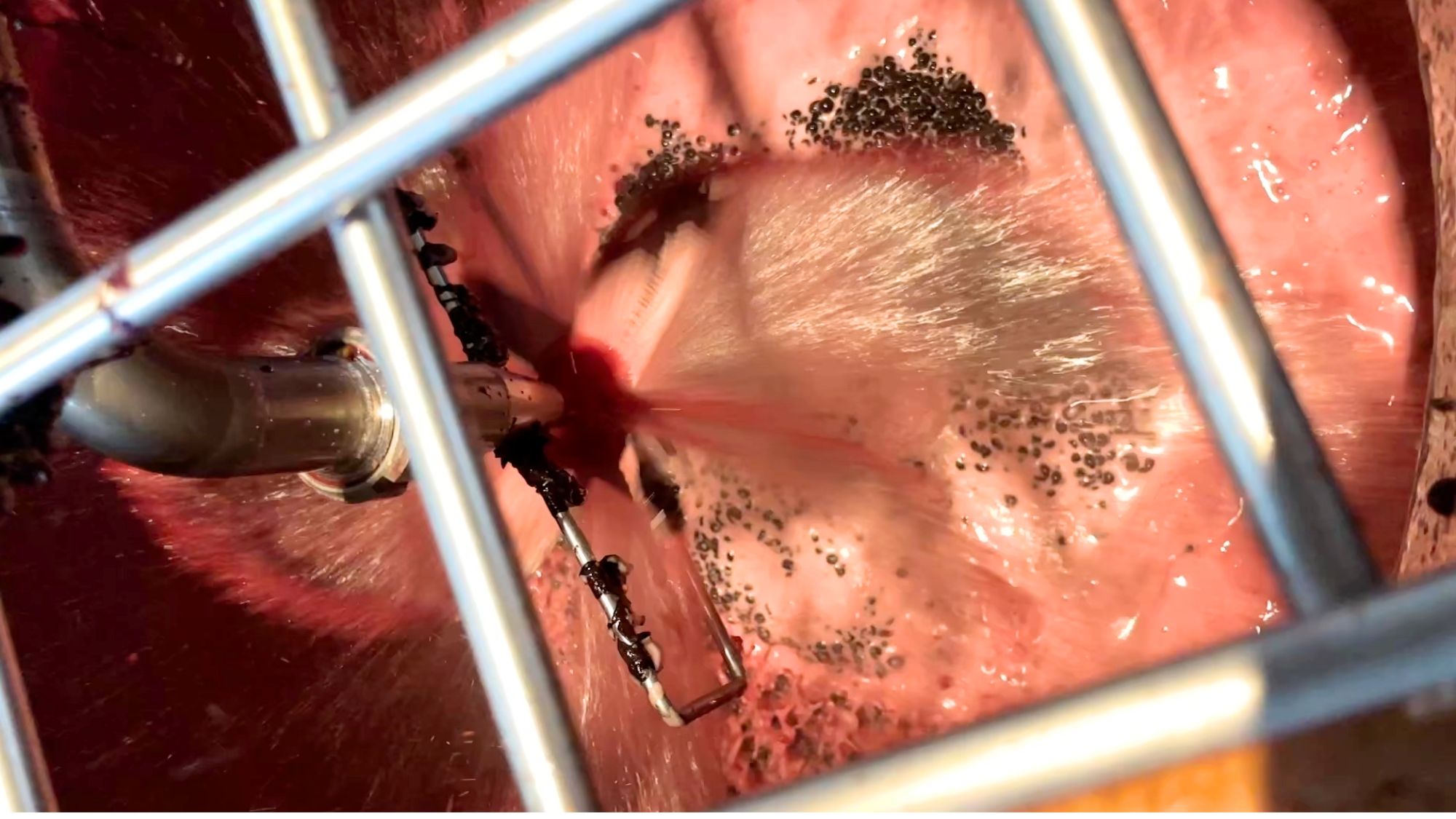
4. Choose estates that explored ways to enrich the body
One of the most common challenges in the 2024 vintage was the lightness of the palate. Those who succeeded were the ones who found ways to give their wines more volume and depth. Here are some excellent examples I observed that may serve as inspiration.
First, fully ripe polyphenols remain the most powerful natural tool. They bring a subtle density and fine texture to the wine. However, under the dual pressure of grey rot and frequent rainfall, achieving full phenolic ripeness was no easy task. Compared with the earlier-ripening Merlot, the later-ripening Cabernet Sauvignon fared better in this regard, especially with a dry spell in early October. This explains why many top Left Bank estates leaned more heavily on Cabernet Sauvignon in 2024.
Second, incorporating high-quality press wine was another effective strategy. This method added richness and helped round out the mid-palate. Notable examples include Château Brane-Cantenac (11.3%), Château Cantenac Brown (11%), Château Margaux (14%), and Château Lafite Rothschild (16%).
Third, bâtonnage sur lie – a technique I rarely associated with red wines in the past – proved surprisingly effective in this vintage. Far from undermining the structure, it brought an appealing silkiness to the texture. For wines that are naturally slender, even slightly lean, this method was a godsend. Both Château Malartic-Lagravière and Château Latour-Martillac benefited from its use.
Fourth, whole-bunch fermentation. This technique has the potential to bring greater aromatic complexity and a subtle touch of sweetness. When handled with skill and sensitivity, as seen at Château Les Carmes Haut-Brion, the result can be remarkable. Their wine weaves together ripe sandalwood and aged Pu-erh tea in a way that feels effortless, refined, and almost spiritual – an expression of “Daoist naturalism” that speaks through both aroma and texture. But when poorly managed, the same technique can backfire. Instead of finesse, it may amplify coarseness in a structure already lacking in softness.
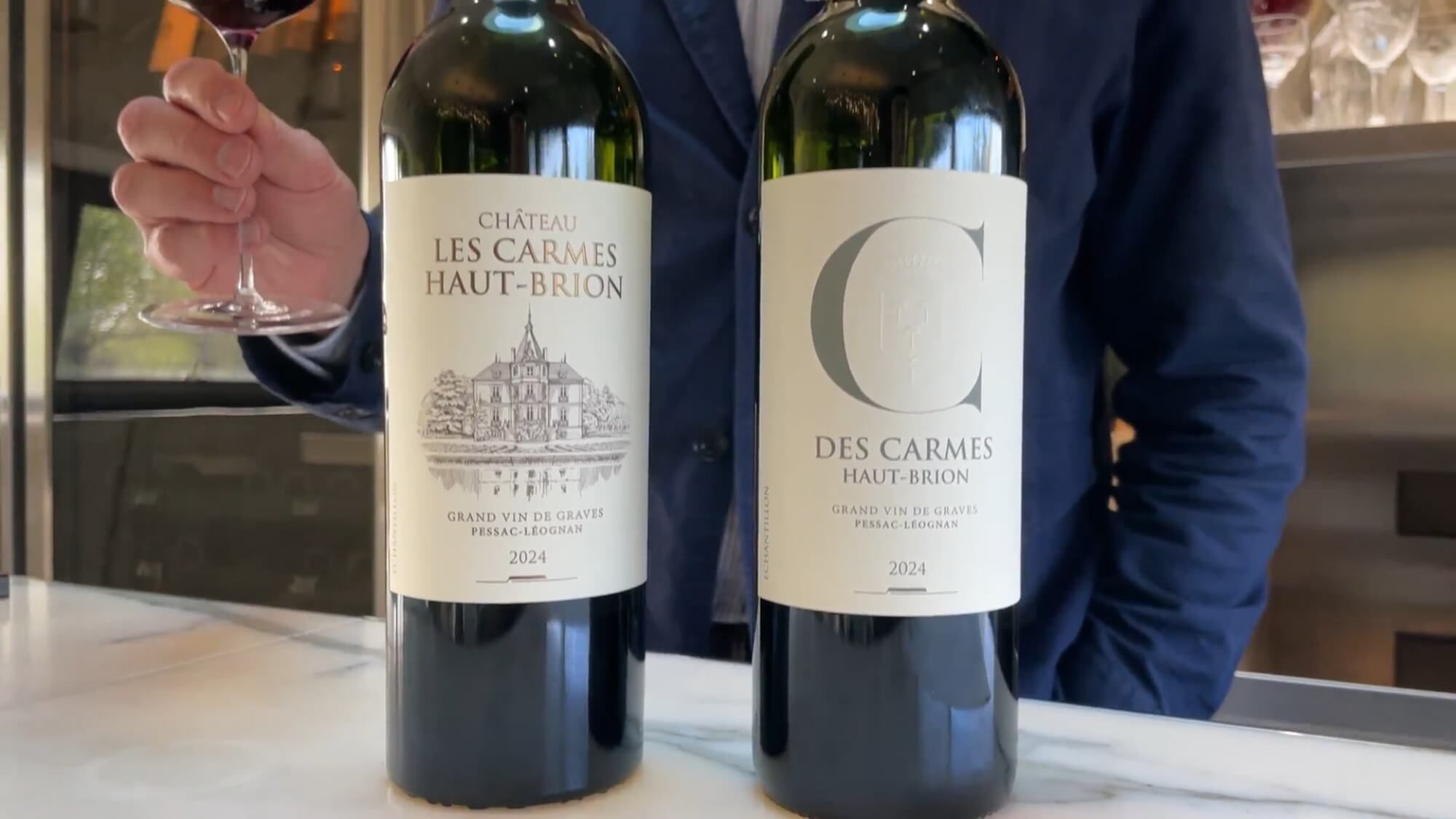
Fifth, wines grown on clay soils have a natural sense of tension and grip. When tannins remain fine in texture, this innate compactness helps create a more focused body and compensates for the lighter feel typical of 2024.
Finally, skilled oak aging remains one of the most effective ways to enhance a wine’s depth. In recent years, many consumers have grown skeptical of oak, treating it as something to avoid rather than embrace. But in truth, well-integrated oak, especially the contribution of toasted tannins, can offer a level of richness that grape tannins alone rarely achieve.
When handled with sensitivity, oak can deepen texture and structure without obscuring fruit. Yet this is also one of the easiest techniques to misuse. It appears simple, but requires far more than technical control. Success lies in the winemaker’s restraint, judgment, and above all, taste.
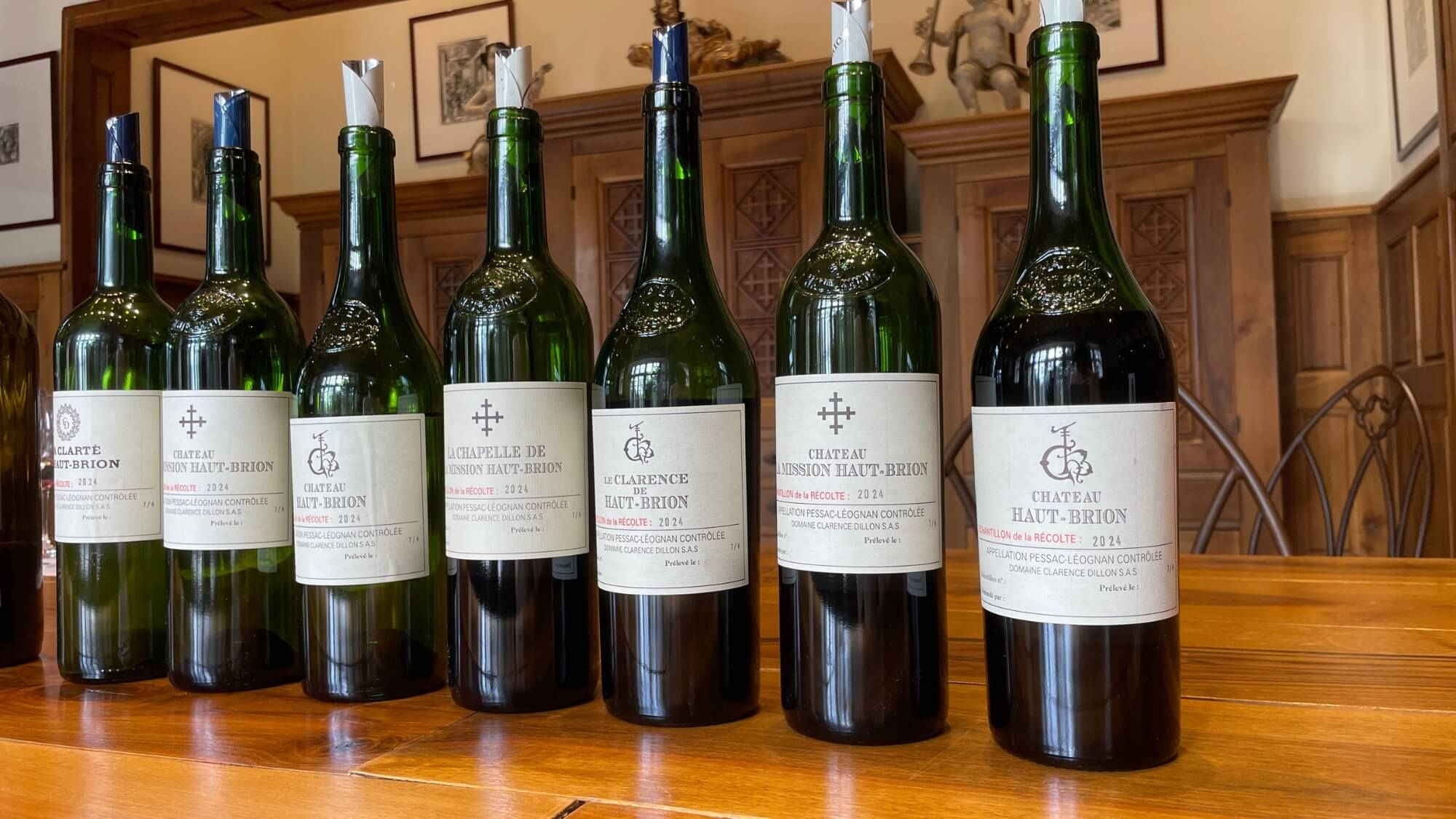
Important considerations after bottling
Given the range of issues that can arise after bottling, I make it a point each year to highlight potential risks following En Primeur tastings. For the 2024 vintage, I recommend paying close attention to the following:
Can the structure remain relatively balanced?
Red wines from 2024 generally present a gentle, lighter profile and lack the intense concentration seen in warmer years. During the En Primeur stage, oak aging often helps to round out the palate. The real question is whether the wine’s elegance and harmony will hold once bottled. Under the influence of high acidity, will the palate become too light? Will the tannins, once integrated, begin to reveal hidden flaws? These are key aspects that warrant careful observation after bottling.
Can the restrained aromatics retain their vitality during aging?
This vintage is marked by understated aromas, focused on fresh red fruit and delicate floral notes. In the months ahead, the question will be whether these subtle aromatics can maintain their vibrancy. Will the aromatic lines remain clear and vivid throughout the aging process? For investors in particular, this deserves close attention.
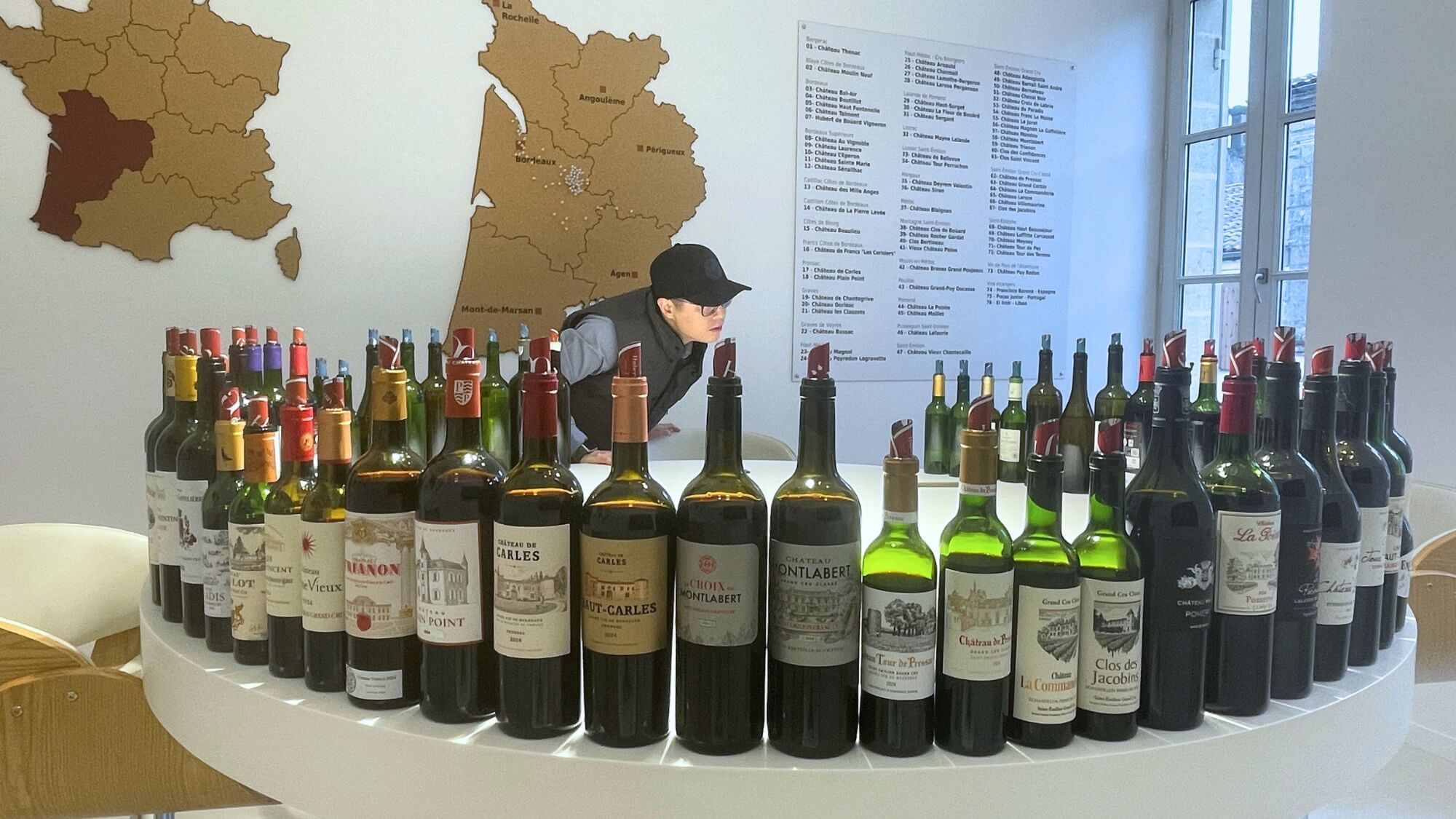
At The End
Overall, the quality of Bordeaux’s 2024 vintage varies widely. Many ordinary estates have faced considerable challenges. Some leading names have achieved results on par with an average year. And yet, those who embraced precision in vineyard management, enforced strict selection, and worked with modern winemaking tools have delivered wines that stand confidently alongside those from greater vintages.
Which estates truly stood out this year? Which En Primeur releases are worth buying? I strongly recommend consulting the AMA En Primeur Selection – “Blooming Lotus” Selection 2024. This selection brings together some of the most compelling wines from across the price spectrum, including a number of truly remarkable whites and noble rot wines that deserve a place in any thoughtful collection.
Finally, I would also like to share an important piece of early information regarding pricing. Given the current global economic climate, the 2024 En Primeur releases are expected to be especially appealing in terms of value. A number of leading estates are planning to lower their prices, and in some cases, the reductions may be quite significant. As one leading château put it, the goal this year is “to offer a price the consumer simply cannot refuse.” Let us hope that this gesture reflects a spirit of sincerity that reaches importers and Bordeaux lovers around the world. In the weeks to come, all eyes will be on Bordeaux.
There is reason to be hopeful, and every reason to pay close attention.
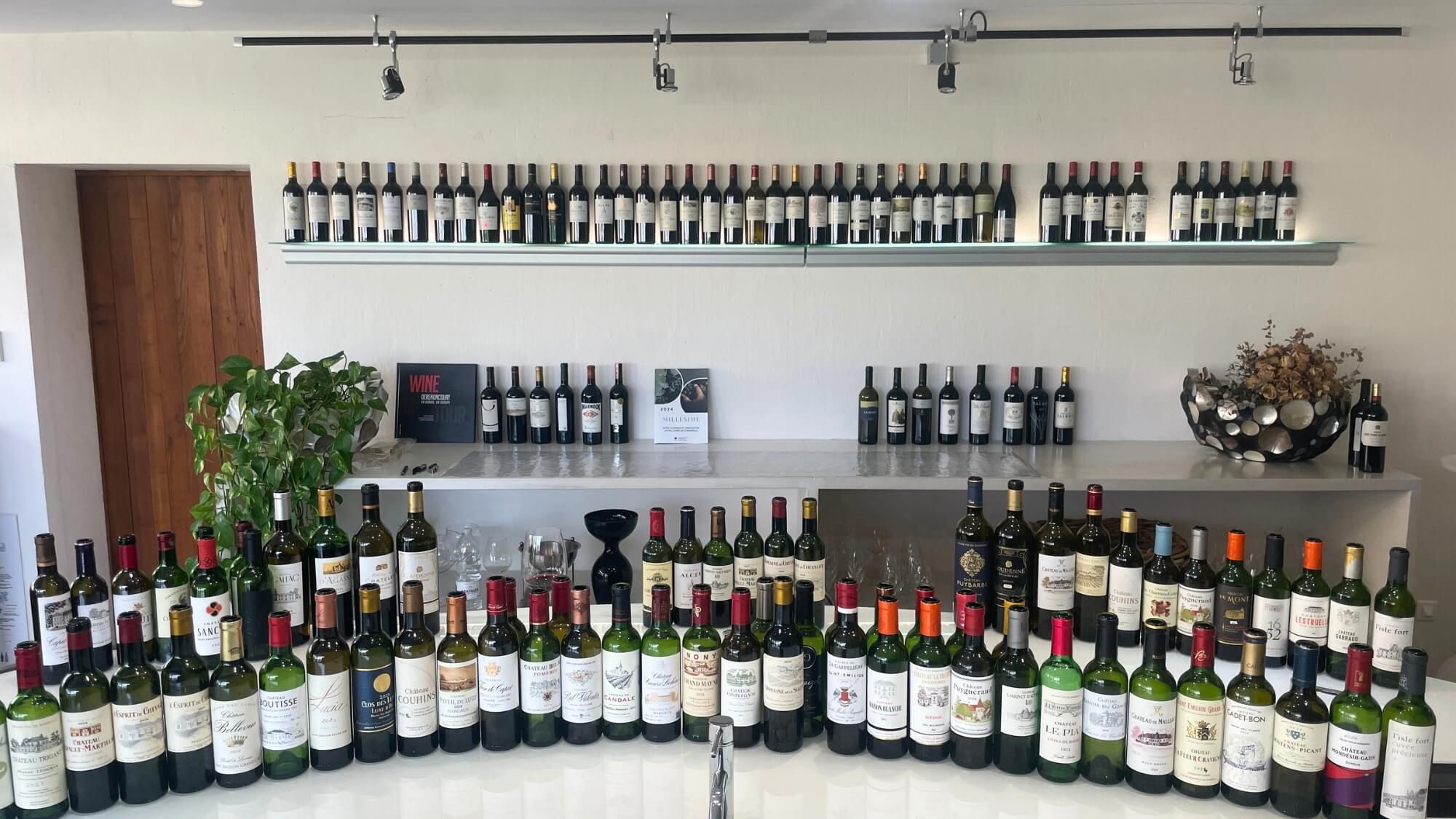
<Part II>
AMA En Primeur Selection – “Blooming Lotus Selection” 2024
<Symbolic Definition>: The term “Xin Shui 心水”, which signifies “my favorite”, was employed by ancient Chinese sages to describe an insightful philosophy of life: keeping a heart as serene as a tranquil water surface. Only by engaging in devoted refinement and staying true to one’s original faith can we inch closer to the realm of perfection. Blooming lotus emerges gracefully from water, a perfect expression of the essence of purity and inner serenity.
<Blooming Lotus Selection>: En Primeur wines that deliver distinct quality, and present an adequate interpretation of their unique terroir, all while offering exceptional value. As vibrant embodiments of Bordeaux’s enchanting beauty and its “original aspiration”, they merit wider recognition and appreciation.
